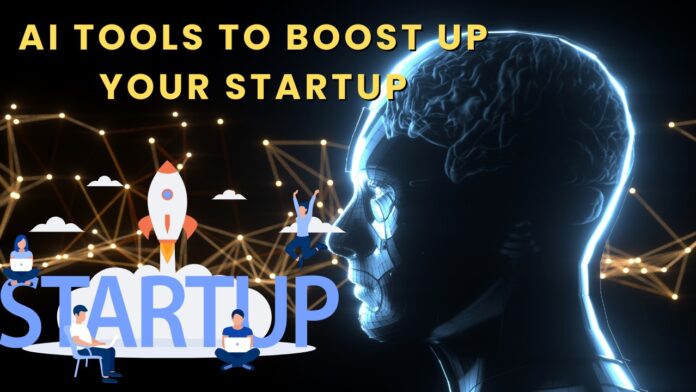The rise of Artificial Intelligence (AI) has transformed how startups operate and innovate across the globe. In a fast-paced, ever-evolving environment, AI tools provide startups with the edge they need to compete with established players. From automating mundane tasks to revolutionizing entire industries, AI has become a powerful ally for entrepreneurs seeking growth and sustainability.
- AI for Business Operations
One of the most profound impacts of AI in startups is the automation of routine processes. In the early stages of a business, time and resources are often limited. AI-driven tools allow startups to streamline operations, optimize workflows, and save significant costs. Common examples include:
• Customer Relationship Management (CRM) tools powered by AI, like Salesforce’s Einstein, offer predictive insights and automate sales processes.
• Chatbots such as Intercom or Drift handle customer inquiries, improving responsiveness without increasing overhead costs.
• AI-based HR platforms, such as Breezy or HireVue, enable seamless candidate screening and even provide predictive analytics to hire the best-fit talent.
These tools empower startups to remain agile, freeing time for more strategic activities while keeping operational efficiency at the forefront. - Enhancing Decision-Making with AI
Startups thrive on making informed, data-driven decisions. AI tools can analyze vast amounts of data in real time, providing critical insights that help entrepreneurs navigate market trends, customer behavior, and internal performance metrics.
• Data analytics platforms like Tableau and Google Analytics leverage AI to sift through large datasets, delivering actionable insights for startups to pivot, scale, or refine their products.
• AI in market research, through tools like Crayon or BuzzSumo, helps businesses keep an eye on competitors, monitor industry trends, and identify emerging opportunities faster than manual research methods.
By using AI-powered insights, startups can make more accurate forecasts, reduce risks, and seize opportunities more effectively. - Personalization and Customer Experience
Customer expectations are higher than ever, and personalization is key to building long-term relationships. AI-powered recommendation engines, predictive algorithms, and real-time data processing enable startups to deliver tailored customer experiences.
• Personalization engines, like Dynamic Yield or Optimizely, use AI to create individualized shopping experiences, which can increase engagement and conversions.
• AI-based marketing tools such as HubSpot and Marketo offer behavior-based targeting and personalized messaging, improving ROI on campaigns.
By leveraging AI, startups can offer products and services that resonate more deeply with customers, fostering brand loyalty and driving revenue. - AI-Driven Innovation in Product Development
AI is not just a support tool for business operations but also a critical driver of innovation. Many startups are incorporating AI into their products and services to solve complex problems or create entirely new markets.
• Startups in healthcare, like Tempus or Atomwise, are using AI to analyze vast quantities of medical data to discover new drugs or tailor treatments to individual patients.
• AI-based fintech platforms, such as Lemonade or Affirm, are revolutionizing the insurance and lending industries by automating underwriting, risk assessment, and fraud detection.
These innovations are enabling startups to deliver cutting-edge solutions faster and more efficiently than ever before, allowing them to challenge industry incumbents and disrupt traditional models. - AI for Scaling Operations
Scaling a business is one of the most challenging phases for any startup. AI tools can help manage the complexities that come with growth, from financial planning to customer management.
• AI-powered financial tools like QuickBooks or Xero enable startups to automate their bookkeeping, optimize cash flow, and even predict future financial needs.
• Customer service platforms that leverage AI, such as Zendesk or Freshdesk, can handle increasing volumes of inquiries while maintaining high service levels.
• Supply chain optimization tools like Llamasoft or ClearMetal use AI to predict demand, manage inventory, and optimize logistics, helping startups to scale their operations seamlessly.
By incorporating AI into their scaling strategies, startups can maintain quality and efficiency as they grow, avoiding the pitfalls that often accompany rapid expansion. - AI in Rural and Emerging Markets
AI’s impact is not confined to urban startups. The rise of AI-driven innovation is also reaching rural and emerging markets. Initiatives like the Ankur Yatra project in India are leveraging AI to foster rural entrepreneurship and development. By empowering startups in underserved regions with AI tools, these initiatives are bridging the digital divide and unlocking new opportunities for growth.
Through the use of AI, startups in sectors such as agriculture, education, and logistics are transforming rural economies, driving social impact, and tapping into previously unreachable markets.




